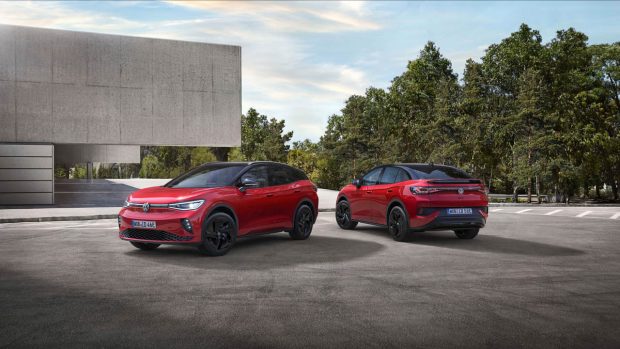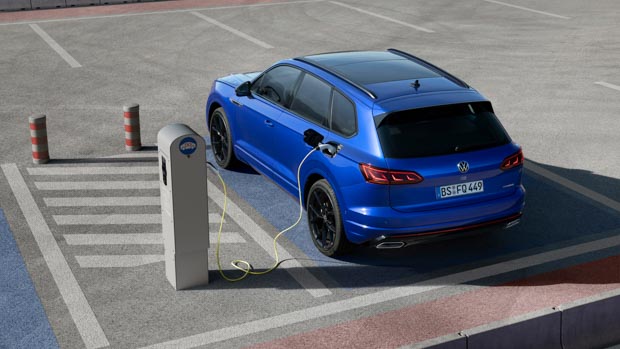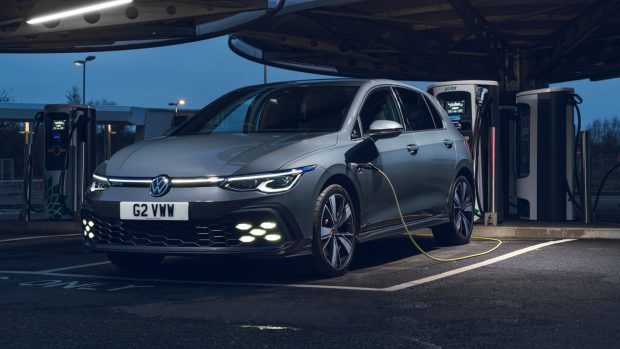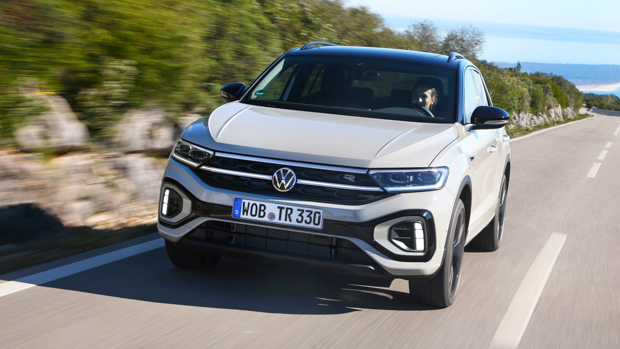-
Car Reviews
- All reviews
- Midsize SUVs
- Small cars
- Utes
- Small SUVs
- Large SUVs
- Large cars
- Sports SUVs
- Sports cars
- Vans
Latest reviews
- Car News
-
Car Comparisons
Latest comparisons
- Chasing Deals
It may be the transition technology of the moment but Volkswagen doesn’t see PHEVs having huge staying power, predicts much greater EV demand
Volkswagen Group Australia (VGA) has been vocal in its push for full electrification downunder, though the German carmaker has been slow to introduce hybrid and fully-electric models locally – but that’s all about to change.
At the National EV Summit in Canberra this August, VGA managing director Paul Sansom called for government legislation to save Australia from becoming “a ‘third world dumping ground’ for obsolete auto technology.”
None of VGA’s mainstream brands – Volkswagen, Cupra and Skoda – currently sell a full EV in Australia. That will change with the introduction of the Cupra Born hatchback, a compact EV that is due for Australian release in early 2023 based on the MEB platform.
MEB, a dedicated electric car architecture running at 400 volts, will also underpin the Volkswagen ID4 and Skoda Enyaq midsize SUVs that have been confirmed for Australian release in 2023 or 2024. VGA already sells the Audi E-tron large SUV locally, but that Q7-based model costs north of $130,000 before on-road costs.
In the hybrid space, Volkswagen will launch its flagship Touareg R plug-in hybrid SUV in Australia later in 2022, while cousin brand Cupra’s Leon and Formentor PHEV models are already here in limited numbers.
Volkswagen Australia brand director Michal Szaniecki told Chasing Cars that there is potential in the hybrid powertrains starting to filter through to Volkswagen’s Australian product offering, but predicted that “[full] EVs will probably be 3-4 times bigger than PHEVs” making up a “substantial niche”, if Volkswagen decides to bring them to Australia in bulk.
This reflects the state of the market. By 31 August 2022, Australians bought a total of 9420 battery electric vehicles compared to just 281 PHEVs. Self-charging hybrids have made up 18,671 of the 717,575 cars sold so far this year.
As such, the German carmaker will focus on pure EVs initially. The ID4 is the first candidate, an electric SUV that’s dimensionally similar to Tiguan expected to land in Australia late in 2023.
This is likely to be followed by the ID5 coupe SUV, with GTX badges likely on sporty grades.
Volksawgen has plans to introduce plug-in hybrids, though mainly in performance contexts. The Touareg R plug-in hybrid combines a turbo-petrol V6 with an electric motor to produce 340kW/700Nm with a 47km WLTP zero emissions range and 2.7L/100km fuel efficiency.
There are as-yet unconfirmed potentials from Volkswagen too, with Europe’s Golf GTE – that uses the same 180kW/400Nm powertrain as Cupra Leon VZe – on the cards, as well as a plug-in Tiguan.
Szaniecki also said “[Volkswagen is] looking to extend this range, maybe with a B segment vehicle at some point.” Volkswagen’s ‘B-segment’ cars include T-Cross and T-Roc SUVs.
As far as we know, the T-Cross light SUV will not be offered with a PHEV powertrain, but there are rumours a plug-in T-Roc could exist. Given it’s essentially a raised Golf, the T-Roc is a more likely candidate for the plug-in powertrain globally.
As for why PHEVs will be a little more niche, it’s down to the added complication and speed that VW expects battery EVs to develop.
According to Mr Szaniecki, “smaller households with maybe two plus one are very keen on buying PHEVs, commuting to work and then having a prolonged weekend somewhere.”
Additionally, if Australian governments do begin to either incentivise battery EVs, or begin to crack down on the number of brand new ICE vehicles sold here with heavy taxes, it’s possible PHEVs could be negatively affected by legislation.
This is already the case in Victoria with the state’s ZLEV road user charge – designed to replace fuel excise – set at a rate of $0.021/km driven by PHEVs from 1 July 2022.
Latest news
About Chasing cars
Chasing Cars reviews are 100% independent.
Because we are powered by Budget Direct Insurance, we don’t receive advertising or sales revenue from car manufacturers.
We’re truly independent – giving you Australia’s best car reviews.



